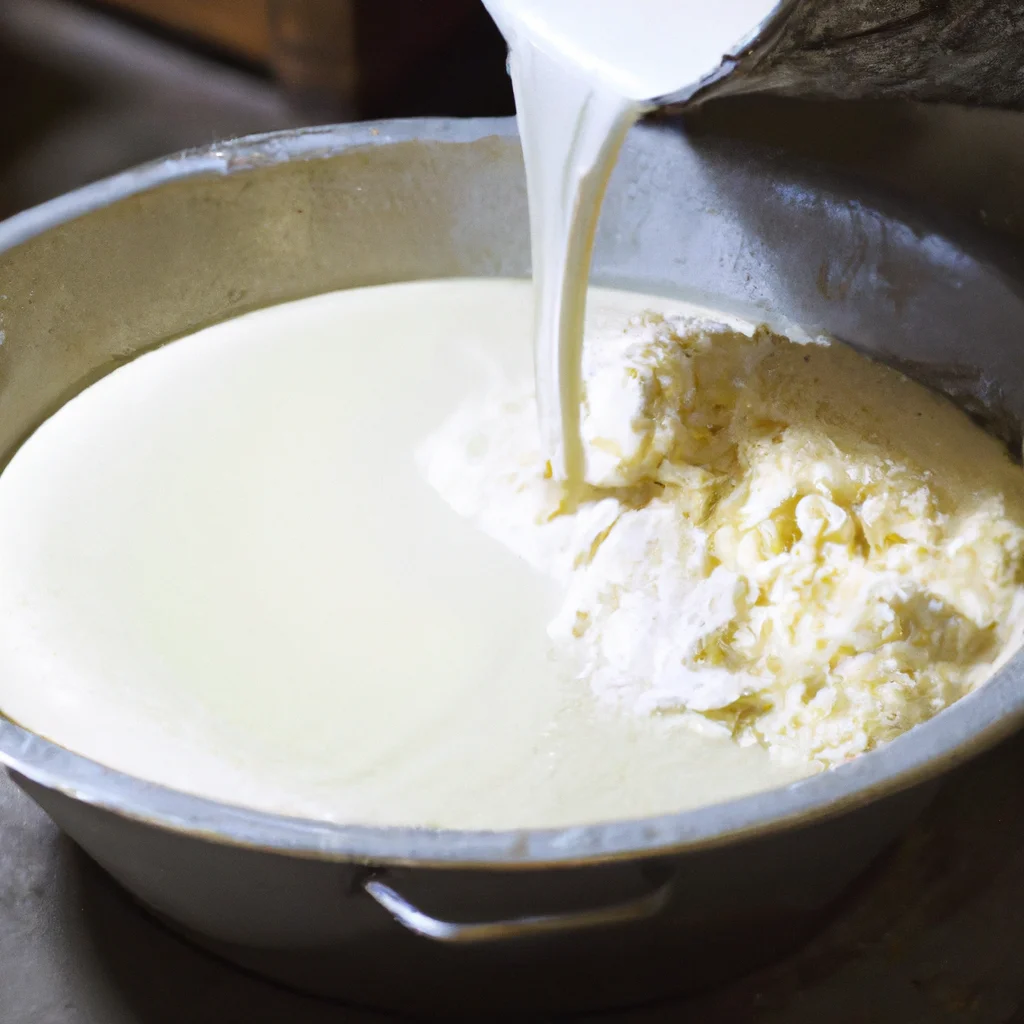What is the process of making homemade cheese?


What is the process of making homemade cheese?
Making homemade cheese is an enjoyable and rewarding process that allows you to create a delicious and unique product in the comfort of your own home. With a few simple ingredients and some basic equipment, you can make cheese that is tasty, healthy, and free from additives and preservatives. In this article, we will guide you through the cheese making process step-by-step and provide you with tips and tricks to help you make the perfect cheese every time.
The Cheese Making Process
Step 1: Choosing Your Milk
The first step in making cheese is to choose the right kind of milk. Fresh, raw milk is ideal, but it can be difficult to find. If you cannot find raw milk, you can use pasteurized milk instead. Whole milk is best for making cheese, but you can also use skim or low-fat milk if you prefer.
Step 2: Adding the Starter Culture
The next step is to add a starter culture to the milk. A starter culture is a blend of bacteria that helps to acidify the milk and create the characteristic flavor and texture of the cheese. You can purchase starter cultures online or at your local cheese making supply store.
Step 3: Adding Rennet
After adding the starter culture, the next step is to add rennet. Rennet is an enzyme that helps to coagulate the milk and form curds. You can purchase rennet in liquid or tablet form. Follow the instructions on the package to determine how much rennet to add.
Step 4: Cutting the Curd
Once the milk has coagulated, it is time to cut the curd. This process involves using a long knife to cut the curd into small cubes. The size of the cubes will depend on the type of cheese you are making.
Step 5: Cooking the Curd
After the curd has been cut, it is time to cook it. Cooking the curd helps to further separate the curds and whey and creates the desired texture of the cheese. The temperature of the curd and the length of time it is cooked will depend on the type of cheese you are making.
Step 6: Draining the Whey
Once the curd has been cooked, it is time to drain the whey. You can use a cheesecloth or a colander to strain the curd and remove as much whey as possible.
Step 7: Pressing the Cheese
After the whey has been drained, it is time to press the cheese. This process involves applying pressure to the cheese to remove any remaining whey and create a solid block of cheese. You can purchase a cheese press online or make your own using a weight and a container.
Step 8: Aging the Cheese
The final step in the cheese making process is to age the cheese. Aging allows the flavors and textures of the cheese to develop and mature. The length of time needed for aging will depend on the type of cheese you are making.
Homemade Cheese Recipe
Here is a simple recipe for making homemade cheese:
Ingredients:
– 1 gallon of milk
– 1 packet of starter culture
– 1/4 teaspoon of liquid rennet
– Salt (optional)
Instructions:
1. Heat the milk to 86°F and add the starter culture.
2. Stir well and let the milk sit for 45 minutes.
3. Add the rennet and stir gently for 1 minute.
4. Let the milk sit for 45 minutes until it has coagulated.
5. Cut the curd into small cubes and cook at 100°F for 30 minutes.
6. Drain the whey and press the cheese for 24 hours.
7. Salt the cheese (optional) and age for 2-3 weeks.
Cheese Making Tips
Here are some tips to help you make the perfect cheese:
– Use fresh, high-quality milk for the best results.
– Use a thermometer to ensure that the milk is at the right temperature.
– Use a clean and sterile environment to prevent contamination.
– Use a cheese press to ensure even pressure on the cheese.
– Experiment with different starter cultures and aging times to create unique and flavorful cheeses.
Conclusion
Making homemade cheese is a fun and rewarding process that allows you to create a delicious and healthy product in your own home. By following the steps outlined in this guide and using the tips and tricks provided, you can make cheese that is perfect every time. Whether you are a beginner or an experienced cheese maker, there is always something new to learn and discover in the world of homemade cheese.
Recent Posts
How do I create an engaging and informative online quiz or assessment?
Creating an engaging and informative online quiz or assessment can be a powerful tool for… Read More
What are the most effective methods for managing and reducing work-related stress in the hospitality industry?
Work-related stress is a common issue in the hospitality industry, where employees often face long… Read More
How can I improve my assertiveness and communication skills in a leadership position?
In a leadership position, assertiveness and effective communication skills are crucial for success. Being able… Read More
What are the key elements of a successful employee recognition and rewards program?
Employee recognition and rewards programs play a crucial role in motivating and engaging employees, as… Read More
How do I effectively manage and respond to customer feedback and reviews?
Customer feedback and online reviews play a crucial role in shaping a company's reputation and… Read More
What are the best strategies for effective time management as a stay-at-home parent?
Effective time management is crucial for stay-at-home parents who juggle multiple responsibilities on a daily… Read More